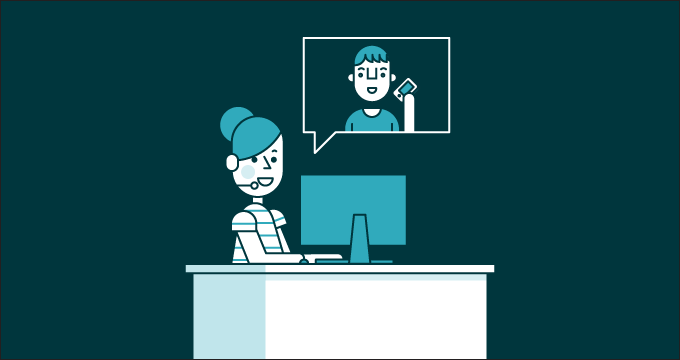There are many different ticketing systems available to choose from. Not all of these ticketing systems are equally good, but others have better features than others. There are a handful of features to look for when choosing the right solution for your business. In this article we are introducing 5 mandatory features that every great ticketing systems should have.
1 . Everything at a glance
According Forrester study 42% of service agents are unable to efficiently resolve customer issues due to disconnected systems, out of date user interfaces, and multiple applications. The main screen of a ticketing system is where your support agents will spend most of their day. That’s why it is very important that the home screen is well designed. Everything should be displayed on a single page, the entire conversation, priority level, status updates, and due dates. Agents should be able to assign tickets, merge, group, close, delete and filter by different categories in one place. A centralized view like this will help provide visibility across all levels of your organization. As a support agent, the last thing you want to be doing is jumping back and forth between multiple screens and tabs piecing together a ticket chain.
2. Ticket triage
One of the first steps you want to do when a ticket comes in is making sure it’s sent to the right people, at the right time. This process is known as ticket triage. It helps you to keep your response time down, prevent internal teams from wasting time sending tickets back and forth and make it easier you to identify trends in incoming tickets. Ticket triage ensures a personalized experience and the highest quality responses for your customers. An effective ticketing system assigns tickets based on it’s subject and priority. Triaging and assigning doesn’t always have to be based on subject matter, it could also be based on the technicality of the issue. Also taking customer service agents availability or level of expertise into account . These levels of priority help eliminate task duplication.

3. Reporting and statistics
You can’t improve what you don’t measure, is for sure saying you’ve heard several times. This is very true also in customer service. It is very important to have that kind of ticketing system which can offer you high-quality reports and statistics. It’s vital that your team has an easy way to track and assess performance across key service categories to properly gauge the performance of your support staff. A good ticketing system should be able to give you both a real-time and historical view of all data. Important statistics to know on your customer service are at least what is your ticket close rate, average time taken to respond to a ticket, number of unresolved incidents, net promoter score and number of replies needed to close a ticket. Using reports, you can monitor daily ticket activity, agent performance, compliance with your service level agreements, average resolution times, and so on. Developing customer service is much easier when you have comprehensive quality reporting and statistics.
4. Knowledge base
Responding to the same question over and over again is a huge waste of time and also expensive too. But how do you overcome this redundancy? One of the easiest ways is to choose a ticketing system that includes knowledge base. Knowledge base is an organized repository of important articles, videos, FAQ and other content that your customer can search and found help to their issues. With this feature you can answer a question one time, publish it to the knowledge base, and never answer it again. Customer find quick answers to trivial questions at any time and you have much less tickets to deal with.
5. Collaboration
You should always remember that customer support is teamwork. The main trick to collaborative customer support is for everyone to work as a team and also have great ticketing system which offer the right tools to make collaboration much easier. The ticketing system should allow at least many people to work simultaneously with a single ticket, transferring the tickets between customer service agents, and easy communication between all employees. Using these tools and other facilitating features a big problems is suddenly turned into a handful of small problems which are easier to tackle.
In addition to these five features listed above, the ticket system should also support other features. It is important to remember that each company has its own needs and views on what kind of system they need. Nowadays, many ticketing systems, like Zendesk, are easily customizable to each customer according to their wishes. You can choose from a comprehensive range of exactly the features you need. This makes it much cheaper and easier to acquire ticketing system.
Source : Zendesk
Zendesk Partner in Thailand
092-262-6390
097-008-6314 (Sales)
support@dmit.co.th
Official LINE







